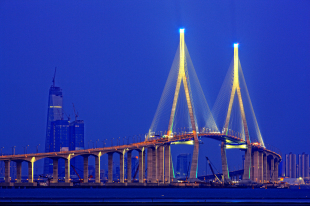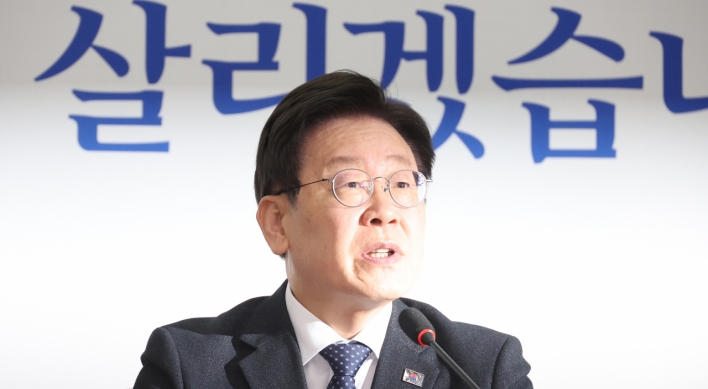[Herald Interview] German industry expert praises Incheon Bridge project
By Korea HeraldPublished : Nov. 9, 2016 - 16:22
Incheon Bridge is a good example to show how an excellently managed project can benefit the local economy, said Reinhard Wagner, president of the International Project Management Association, during an interview with The Korea Herald on Wednesday.
The project won the premium gold award from the biennial IPMA World Congress competition last year, although Korea was not a member of the Swiss-registered international association of 66 countries aiming for high-value sustainable projects.
The project won the premium gold award from the biennial IPMA World Congress competition last year, although Korea was not a member of the Swiss-registered international association of 66 countries aiming for high-value sustainable projects.

“The Incheon Bridge project, with investment and excellent project management leading into benefits for the society and the region, is worth an award,” Wagner said. The German expert on project managing leadership was visiting Korea to offer education on project management to corporate executives and professors.
The Incheon Bridge, opened in 2009, was a result of one of the largest public-private joint venture projects in South Korea, with investment of 2.5 trillion won ($2.17 billion).
Connecting between Songdo and Yeongjongdo, the 21.4-kilometer bridge boosted the combined real estate value of the two areas by 250 trillion won, an Incheon Bridge Company official said.
Through the assessment and awarding process at the IPMA, Korea was exposed to the IPMA community, and the country officially joined the IPMA just last month.
Korea can learn international practices in project management through such a global community, said Wagner, who has been in the field of project management for more than 30 years in such areas as air defense, automotive engineering and machinery.
“Korea took a very short track in founding an association and joining the IPMA. That’s about passion and also the support from the government side,” he said.
Wagner said although Korea has a high reputation for products and technologies, he felt that people are “inward-oriented.” The Korean society should give more space for young people, in particular, to come up with new ideas to keep advancing in the world, he said.
Wagner also shared his insights on the reunification of Germany from the perspective of project management, which he gave a special lecture on at University of North Korean Studies later in the day.
He said if there is a chance that the two Koreas can be reunified, political leaders should keep project management in mind at the initial stage of drawing up a master plan for a reunified Korea.
Taking the example of Germany, he said Germany would have completed the reunification process faster and saved a lot on costs if his country had done so.
“In Germany, reunification is not complete, although it’s been 26 years since the 1990 treaty (between West and East Germany),” said Wagner, explaining that social and economic divides are still a headache.
He projected that it would take 10 to 20 more years to close social and economic gaps in Germany.
By Kim Yoon-mi(yoonmi@heraldcorp.com) and Lee Hong-seok(gilbert@heraldcorp.com)
-
Articles by Korea Herald



![[Herald Interview] 'Amid aging population, Korea to invite more young professionals from overseas'](http://res.heraldm.com/phpwas/restmb_idxmake.php?idx=644&simg=/content/image/2024/04/24/20240424050844_0.jpg&u=20240424200058)







![[Hello India] Hyundai Motor vows to boost 'clean mobility' in India](http://res.heraldm.com/phpwas/restmb_idxmake.php?idx=644&simg=/content/image/2024/04/25/20240425050672_0.jpg&u=)






![[Today’s K-pop] NewJeans' single teasers release amid intrigue](http://res.heraldm.com/phpwas/restmb_idxmake.php?idx=642&simg=/content/image/2024/04/26/20240426050575_0.jpg&u=)